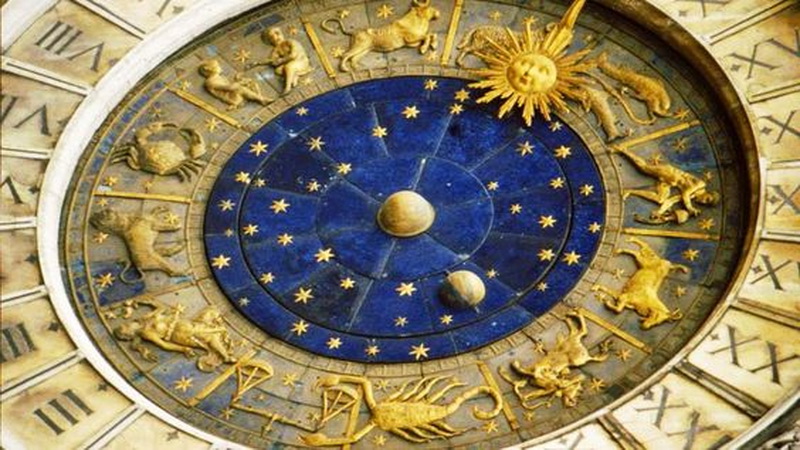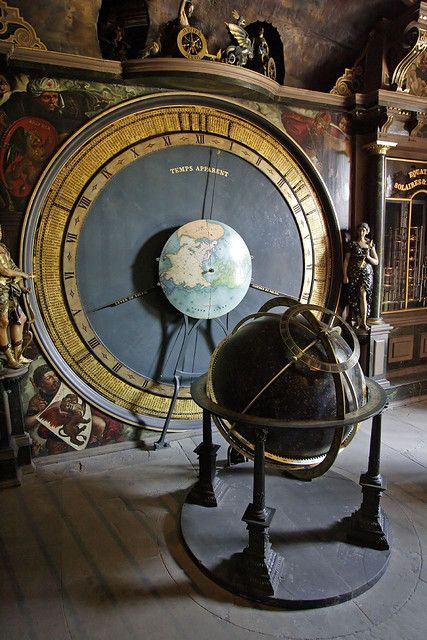In the minds of most people, esotericism and science stand on opposite sides of the barricades. The word “barricades” was not chosen by chance, since you can find numerous examples of conflicts between representatives of these worldviews. This kind of splitting is inherent in modern society. Some systems seek to single-handedly determine what is true and what is distortion, while devaluing the views of other systems. But is such a split inevitable? Is there a possibility of dialogue? Can we, in principle, talk about any science-oriented approach in esotericism?
This is a very difficult question, which is hard to answer superficially. I will not undertake now to discuss the topic of why esotericism is necessary for science, since this is too premature a topic. I propose to think about what esotericism can borrow from modern science, and what benefits can be obtained from such a synthesis of systems.

Speaking about modern esotericism, one should not hush up the problems existing in it. No matter how science relates to mystics, fortune tellers, mediums and clairvoyants, they will not disappear anywhere, and will continue to attract people. At different historical stages and in different cultures, esotericism either hid underground, then came to the fore and attracted attention. Today it is difficult to live a week without encountering certain esoteric content somewhere. This can be the media, the Internet, your own social circle, where someone from your acquaintances or friends read an esoteric book or went for a consultation with a particular mystical practitioner. This is a trendy theme, an exciting theme, a seductive theme that is hard to pass by for indifferent people. And, of course, many esotericists and pretending to be such people are perfectly aware of this.
The popularity of the topic, despite the contradiction in its name (the teaching is not for the majority), made modern esotericism exoteric, and, therefore, accessible to almost everyone. But unlike other knowledge systems, which have their own standards and supports, modern esotericism sometimes resembles a “troll market” where you can get lost, become a victim of deception, or really buy something worthwhile.
It is the same with esoteric literature. There is a paradox. The older the work, the more likely it is to find references to other authors in it. Modern esoteric writers seem to deliberately refuse to put links to the work of their colleagues, often repeating what was said hundreds of years ago, but in their own interpretation, triggering the effect of a damaged phone. Of course, in order to place links in the text, you must first work through a huge amount of literature on the topic in order to find out what colleagues have written on this subject in the past. This is a tedious job that most authors don’t do. And this cannot but affect the quality of such literature.
At times like these, I feel sorry for the inexperienced esoteric reader. It seems simply impossible to navigate in such a variety of literary sources. There are classical works, there are authors who repeat the classics with a significant distortion and profanation of the original idea, and there are also frankly toxic books, after reading which an inexperienced reader can receive serious psychological harm if he/she takes what is read seriously.
Let’s look at this whole situation through the eyes of a scientist. In science, the laws and rules of the game are completely different. Your research will not be published if you do not conduct a thorough analysis of the literature, if you do not place links in the text, if you do not substantiate your point of view and confirm it according to the rules of the science in which you work. Scientists are organized into communities because science is purely a collective endeavor. There is a multi-stage system of control and verification of the information presented by the next scientist. Of course, having such an experience, a man of science will only snort contemptuously when he/she looks towards esotericism.
Today it is generally accepted that the main reason for the conflict between scientists and esotericists is questions of rationality. But it seems to me that this is already a secondary complexity. The basis for the conflict is precisely the way to formalize their activities. The picture of the world (or ontology) certainly matters. But it is formed and transformed on the basis of epistemology or the methods by which a person obtains facts and verifies them. It seems to me that the main problem of esotericism is the absence of its own epistemology, which makes it rejected and despised by many traditional scientists.
Those representatives of science, whom the esotericists have managed to anger thoroughly, suggest, in the conditions of a scientific experiment, to check certain esoteric statements. The result turns out to be disastrous, since it is necessary to carefully prescribe the procedure, determine the methods and control, and the esoteric phenomenon miraculously evaporates. The scientist triumphantly declares that esotericism is delusion, and all people who support it are either charlatans or mentally ill people. But is it possible to verify the provisions of one science by the methods of another? Partially possible, but the picture may turn out to be distorted. It would never occur to anyone to check the laws of chemistry by the methods of history, since they simply are not designed for this. Scientists who try to “test” esotericism from the outside, not understanding anything in it, cannot come to correct conclusions about its essence. The esotericists themselves are not particularly interested in such work, continuing their practice in the usual tradition. But not all esotericists like the current state of affairs.

If esotericism develops its own science-oriented direction, it will, in my opinion, be a minority trend. These are the people who want to critically interpret their practice, who see in esotericism a bizarre mixture of precious truths and psychiatric pathology, who are offended to hear when scientists proudly declare that all esotericism is a cognitive mistake. These are the practitioners who want collegiality and help in their work, but they cannot find a properly organized esoteric community, which would be guided by their own ethical rules. These are the people who are tired of buying another book on esotericism and reading the same thing again, but under the abundant dressing of the author’s psychological compensation.
A scientifically oriented direction in esotericism is not necessary at all in order to call all esotericists to account and discipline. It is naive to believe that such a thing can happen in principle. The historical experience of the esoteric subculture allows it, like a chameleon, to quickly adapt to the next historical era and successfully survive in it. This direction is necessary for that small group of practitioners who want to develop, but have exhausted the possibilities of their cultural niche. Then help must be sought in the experience of other worldview systems.
In my opinion, esotericism needs, first of all, to be conceptualized. We have a huge amount of scattered, critically unreasonable esoteric experience that has not yet been built into the tradition of one or another esoteric school. The user of esoteric services begins to ask questions that many esotericists simply cannot answer. And these questions are legitimate, since from a legal point of view, a person has the right to know what he/she is paying money for. And clients are not satisfied with the florid excuses in the spirit of “this is only for the elite”, they want an understandable and respectful dialogue.
I would like to believe that there are more and more esoteric practitioners and theorists who are thinking about the very possibility of using the achievements of traditional science in their work. Everyone can contribute to this trend. Of course, this presupposes a long and meticulous work, but the result may be that a voice will sound in the esoteric choir that will speak respectfully, correctly and clearly about esotericism in such a way as to be able to transcend the created split between esotericism and other systems of knowledge.
Henadzi Bialiauski
